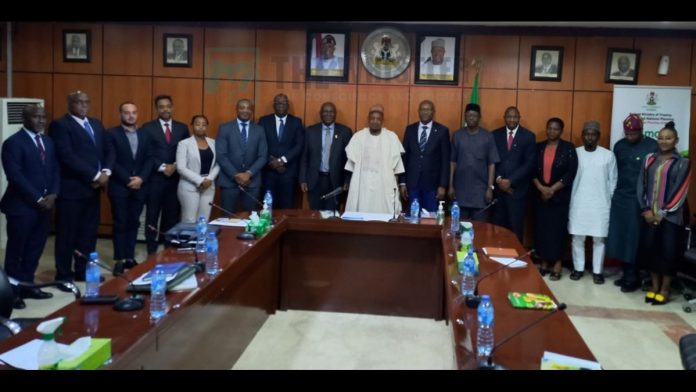News in Brief:
– A delegate from Mozambique visited Nigeria to learn about its strategies for financing smallholder farmers.
– The delegation expressed interest in NIRSAL, hoping to adopt similar approaches to improve food security in Mozambique.
A high-level delegation from Mozambique recently embarked on a knowledge-sharing mission to Nigeria. The visit was aimed at learning and adopting from Nigeriaâs strategies in derisking agricultural lending and financing for smallholder farmer.
The visit was funded by the Food and Agriculture Organization (FAO). It highlights the growing importance of cooperation in addressing shared agricultural challenges across Africa.
The Mozambican delegation was led by National Director for Promotion of Commercial Agriculture, Jaime Robert Chissico.
Specifically, the delegation expressed interest regarding de-risking agricultural lending and financing for smallholder farmers. Mozambique faces limitations in its agricultural sector. These include restricted budgetary allocation and limited credit access for farmers beyond specific cash crops.
Nigeria’s Minister of Budget and Economic Planning, Atiku Bagudu, receiving the delegation, outlined various mechanisms employed by the government to support agriculture. These mechanisms include:
- Anchor Borrowers’ Programme (ABP), which facilitates linkages between farmers and processors.
- Agricultural Credit Guarantee Scheme Fund (ACGSF), which provides loan default guarantees.
- NIRSAL, a non-bank institution dedicated to addressing and distributing credit risks within Nigeria’s agricultural businesses.
Derisking agricultural lending: technology and NIRSAL as key enablers
During the meeting with the delegation, Bagudu discussed the role of the various institutions in funding agricultural projects. He highlighted the importance of achieving sustainable growth in the sector and mentioned successful initiatives like the Anchor Borrowers Programme and the use of technology to de-risk agricultural lending.
The minister also stressed that Nigeria’s model of using technology and NIRSAL to reduce risk for lenders has yielded positive results, encouraging increased participation in agricultural financing schemes.
Also, Nigeria’s innovative use of technology, such as land registration with geographic information systems (GIS) and BVN-linked identity verification was examined. Ultimately, the knowledge gained from this visit is expected to inform Mozambique’s efforts in developing a more inclusive and sustainable agricultural financing model.



